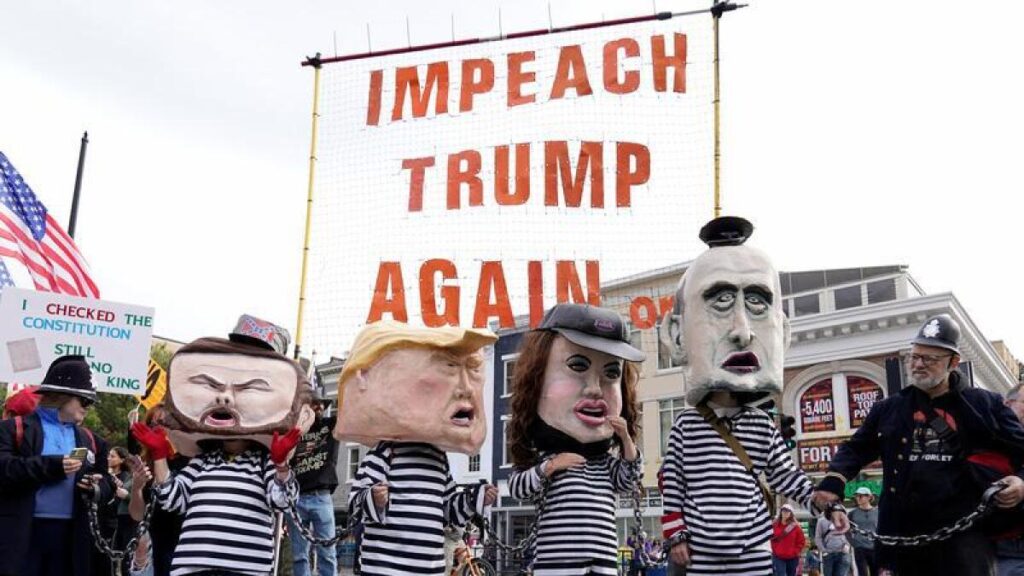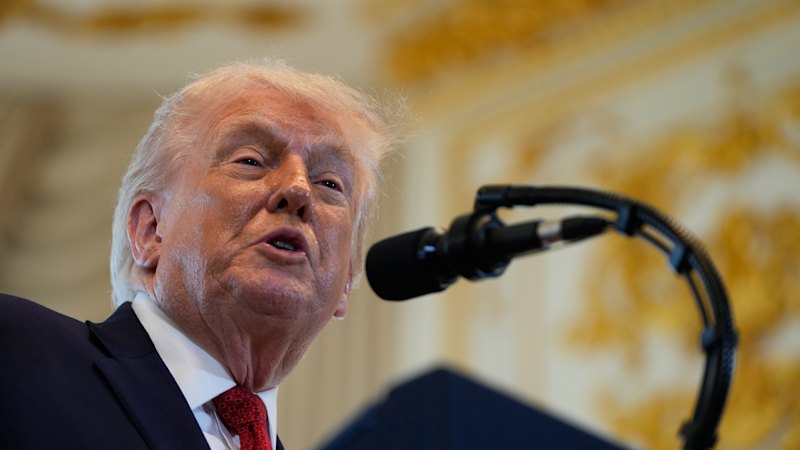
Demonstrations against the policies of President Donald Trump unfolded across the United States and in cities worldwide on Saturday, as part of the “No Kings” rallies. These protests, which attracted large crowds, were organized in response to what many view as an aggressive agenda that Trump has implemented since taking office in January 2023.
Protests began outside the United States, with a couple of hundred demonstrators gathering near the US embassy in London, and additional gatherings occurring in Madrid and Barcelona. By Saturday morning, protests intensified in Northern Virginia, where many participants marched on overpasses leading into Washington, D.C.. A significant gathering took place near Arlington National Cemetery, close to the site where Trump is considering constructing an arch across the bridge from the Lincoln Memorial.
Since taking office, Trump’s administration has made sweeping changes, including enhanced immigration enforcement, reductions in the federal workforce, and cuts to funding for prestigious universities. These actions have sparked considerable backlash, particularly in major cities where National Guard troops have been deployed by the president to support immigration agents and address crime.
Leah Greenberg, co-founder of the progressive organization Indivisible—the main organizer of the No Kings marches—emphasized the importance of peaceful protest. “There is nothing more American than saying ‘we don’t have kings’ and exercising our right to peacefully protest,” she stated.
While Trump has not directly addressed the protests, he commented in an interview with Fox Business that the notion of him being referred to as a king was inaccurate.
Anticipation for the rallies was high, with Dana Fisher, a professor at American University in Washington, D.C., predicting that participation could exceed three million people. This estimate was based on prior registrations and the turnout for events held in June. Fisher highlighted the significance of the protests, noting, “The main point of this day of action is to create a sense of collective identity amongst all the people who are feeling like they are being persecuted or are anxious due to the Trump administration and its policies.”
While the protests may not directly alter Trump’s policies, Fisher believes they could inspire elected officials to take a stand against the administration. The widespread mobilization reflects deep-seated frustrations among various groups, marking a significant moment in the ongoing dialogue surrounding governance and representation in the United States.
The No Kings protests illustrate a growing movement among those who feel marginalized by current policies and are committed to advocating for their rights through collective action.






